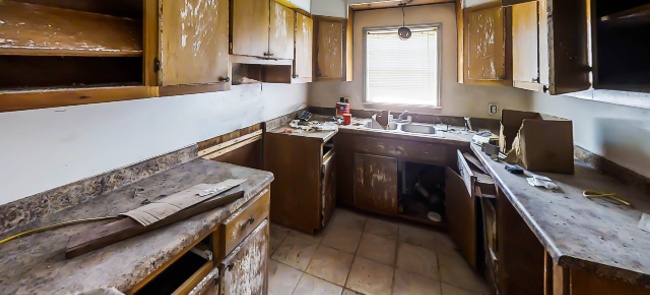California Civil Code §1941.1 is a civil code that talks about habitability standards set to protect tenants from uninhabitable properties. The idea of this law is to bring more power to the tenants that are in unsafe conditions due to poor landlord management (extreme and unlikely cases). Habitability laws are extremely important to understand for new landlords in Riverside, California. California itself is a very tenant-friendly state, which means that landlords need to understand the legality aspect behind rental properties before anything else. Today’s blog post will talk in depth about what these Habitability Laws mean, and what would happen if landlords failed to comply with this law.
What is California Civil Code §1941.1?

California Civil Code §1941.1 sets minimum habitability standards that every rental property must meet. In simple terms, it outlines the basic requirements that make a unit livable, such as running water, working plumbing, safe electrical systems, and weatherproofing. If a rental unit "substantially lacks" any of these essentials, it is considered legally uninhabitable. Now, there is a lot more to this law, so to make it easier to understand, we are going to give you the actual law and everything inside of California Civil Code §1941.1. Then, we are going to break it down into segments and help you understand what the law is actually about, and what it is trying to tell you.
The law itself serves as a safeguard for tenants while placing a clear responsibility on landlords to maintain safe, clean, and functioning rental housing.
The legislature itself states,
“(a) A dwelling shall be deemed untenantable for purposes of Section 1941 if it substantially lacks any of the following affirmative standard characteristics or is a residential unit described in Section 17920.3 or 17920.10 of the Health and Safety Code:
(1) Effective waterproofing and weather protection of roof and exterior walls, including unbroken windows and doors.
(2) Plumbing or gas facilities that conformed to applicable law in effect at the time of installation, maintained in good working order.
(3) A water supply approved under applicable law that is under the control of the tenant, capable of producing hot and cold running water, or a system that is under the control of the landlord, that produces hot and cold running water, furnished to appropriate fixtures, and connected to a sewage disposal system approved under applicable law.
(4) Heating facilities that conformed with applicable law at the time of installation, maintained in good working order.
(5) Electrical lighting, with wiring and electrical equipment that conformed with applicable law at the time of installation, maintained in good working order.
(6) Building, grounds, and appurtenances at the time of the commencement of the lease or rental agreement, and all areas under control of the landlord, kept in every part clean, sanitary, and free from all accumulations of debris, filth, rubbish, garbage, rodents, and vermin.
(7) An adequate number of appropriate receptacles for garbage and rubbish, in clean condition and good repair at the time of the commencement of the lease or rental agreement, with the landlord providing appropriate serviceable receptacles thereafter and being responsible for the clean condition and good repair of the receptacles under his or her control.
(8) Floors, stairways, and railings maintained in good repair.
(9) A locking mail receptacle for each residential unit in a residential hotel, as required by Section 17958.3 of the Health and Safety Code. This subdivision shall become operative on July 1, 2008.
(b) Nothing in this section shall be interpreted to prohibit a tenant or owner of rental properties from qualifying for a utility energy savings assistance program, or any other program assistance, for heating or hot water system repairs or replacement, or a combination of heating and hot water system repairs or replacements, that would achieve energy savings.”
California Civil Code Section 1941.1 sets the minimum legal standards that rental properties must meet to be considered habitable. In simple terms, it requires landlords to provide housing that is safe, clean, and fit to live in. This is known as the "implied warranty of habitability," and it applies to all residential rental units in California. Under this law, landlords must ensure the property has working plumbing, hot and cold running water, a functioning heating system, safe electrical wiring, proper weatherproofing (like intact roofs and windows), and is free from pests, garbage, and other unsanitary conditions. The property must also have secure doors and windows, working smoke detectors, and safe structural elements like stairs and railings. If any of these essential features are missing or not properly maintained, the rental unit is considered legally uninhabitable. Landlords are responsible for fixing these issues, and failure to do so can result in legal consequences, including fines, lawsuits, and rent withholding by tenants.
What does California Civil Code §1941.1 mean for Landlords in Riverside?
California Civil Code Section 1941.1 places a clear legal obligation on landlords in Riverside to maintain their rental properties in a habitable condition throughout the duration of a tenancy. This means that landlords must ensure the property is safe, sanitary, and suitable for human living, not just at the start of the lease, but consistently over time. The law requires that essential systems such as plumbing, heating, electrical, and water supply are fully functional and up to code. Landlords are also responsible for making sure the property is weatherproofed, structurally sound, free from pests, and kept clean. Features like secure doors and windows, functioning smoke detectors, and safe stairs or railings are also required.
For Riverside landlords, the implications of this law are significant. If a property fails to meet any of the required standards, tenants have several legal remedies available to them. They may issue written notice and withhold rent until repairs are made, make necessary repairs themselves and deduct the cost from their rent, or even legally break the lease and move out without penalty. In more serious cases, tenants can report the landlord to the City of Riverside’s Code Enforcement Division, which can lead to inspections, citations, fines, and orders to fix the violations. Landlords who ignore these issues may face civil lawsuits, be ordered to pay damages and legal fees, and potentially lose their right to collect rent or evict tenants until the property is brought into compliance.
In essence, Civil Code Section 1941.1 is a foundational part of California landlord-tenant law that prioritizes tenant health and safety. For landlords in Riverside, staying compliant with this law is not optional. It requires a proactive approach to maintenance, timely response to tenant repair requests, and a thorough understanding of both state and local housing codes. Failure to comply can lead to legal exposure, financial penalties, and damage to the landlord’s reputation and investment.
Penalties for Riverside Landlords that Fail to Comply with California Civil Code §1941.1
Landlords in Riverside who do not comply with California Civil Code Section 1941.1 can face serious legal and financial consequences. When a rental unit is determined to be uninhabitable due to issues like broken plumbing, no heat, pest infestations, or unsafe electrical systems, tenants are protected under state law and have several powerful remedies available to them.
One of the most common consequences is the use of tenant legal remedies. If a landlord fails to make timely repairs after receiving written notice from the tenant, the tenant may legally withhold rent until the problem is corrected. In some cases, the tenant can choose to pay for the repairs themselves and subtract the cost from their rent, up to the equivalent of one month’s rent. If the problem is serious enough that it affects the tenant’s health or safety, the tenant may also move out before the lease ends without facing penalties. Tenants may also file a complaint with Riverside’s Code Enforcement Division or other local housing authorities, which can trigger formal inspections and enforcement actions.
California law also limits a landlord’s ability to collect rent or pursue eviction when a property fails to meet habitability standards. Civil Code Section 1942.4 specifically states that landlords are not allowed to demand rent or serve eviction notices for nonpayment when the property is uninhabitable. Attempting to do so can result in the eviction case being dismissed and may expose the landlord to additional legal action.
Landlords who knowingly collect rent from tenants living in uninhabitable conditions may be sued under state law. Tenants can file civil lawsuits seeking actual damages for any harm they experienced, and they may also be entitled to statutory penalties ranging from one hundred dollars to five thousand dollars. These lawsuits often include attorney’s fees, which can further increase the landlord’s financial burden.
Local government agencies have the authority to step in and enforce compliance. If a tenant files a complaint, the City of Riverside can send inspectors to the property and require the landlord to make necessary repairs. If the landlord does not comply, the city can issue citations, impose administrative fines, and in some cases require the landlord to pay for the tenant’s temporary relocation while repairs are completed.
Finally, landlords may face general civil liability for damages that result from unsafe living conditions. Courts in California have held landlords accountable for failing to provide adequate security, lighting, or basic maintenance when those failures lead to harm. In rare but severe cases, landlords could even face criminal charges if dangerous conditions result in serious injury or death.
In summary, noncompliance with habitability laws is a major risk for landlords in Riverside. Ignoring the standards set by Civil Code Section 1941.1 can lead to withheld rent, lawsuits, government enforcement, and significant financial loss. The best way for landlords to avoid these penalties is by responding promptly to repair requests, conducting routine maintenance, and ensuring their properties remain safe and livable at all times.
How to Mitigate California Civil Code §1941.1

For landlords in Riverside, avoiding the risks and penalties associated with California Civil Code Section 1941.1 starts with taking a proactive and consistent approach to property maintenance. Meeting habitability standards is not a one-time obligation at the beginning of the lease. It is an ongoing legal responsibility that applies throughout the entire tenancy. The good news is that with the right systems in place, landlords can stay compliant and avoid costly legal problems.
The first step is to conduct thorough property inspections before a new tenant moves in. This includes checking all major systems such as plumbing, heating, electrical, roofing, and weatherproofing. Any issues should be resolved before the tenant takes possession. It is also important to document the condition of the property with photos and written notes so there is a clear record of compliance.
Once the property is occupied, landlords must remain responsive to repair requests. California law requires landlords to address habitability issues within a reasonable time. While the law does not define an exact time frame, delays in fixing urgent issues like broken heaters, water leaks, or pest infestations can lead to legal trouble. Landlords should communicate clearly with tenants, keep written records of all repair requests, and follow up until the issue is fully resolved.
Routine maintenance is also key to long term compliance. Scheduling regular property checks can help identify and fix problems before they become violations. This includes inspecting roofs, plumbing systems, smoke detectors, appliances, and structural components such as stairs and railings. Preventive maintenance not only protects tenants but also preserves the value of the property.
Staying informed about local regulations is another important strategy. In addition to the state level requirements under Section 1941.1, Riverside may have its own codes that require additional safety features or accessibility measures. Landlords should be familiar with these local rules and be prepared to update their properties as needed.
Finally, working with experienced professionals can help reduce the risk of noncompliance. Property managers, licensed contractors, and real estate attorneys can all provide valuable support in maintaining a rental property that meets legal standards. Many landlords also benefit from having a written maintenance checklist or habitability compliance plan in place.
In short, mitigating risk under California Civil Code Section 1941.1 means being proactive, organized, and responsive. By staying ahead of maintenance issues and treating habitability as a year round responsibility, Riverside landlords can avoid tenant disputes, government enforcement, and expensive legal penalties.



